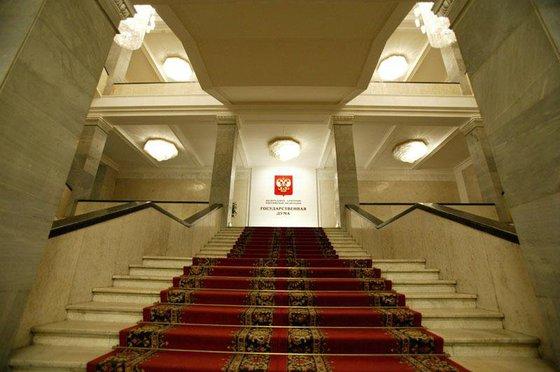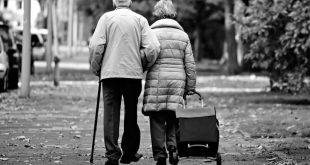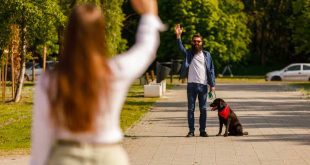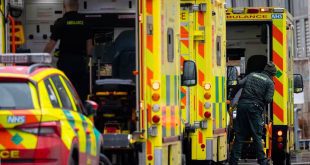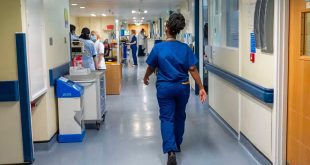After the elections in 2011, Russia was swept by unprecedented wave of protests. This year on September 18 the country will hold parliamentary elections, but the times are not the same, says a regular contributor to the Tagesspiegel Nick Afanasiev.

The theme of Russia – one of the most fertile for discussion, the journalist said. The country is so full of contradictions that builds bridges that divide more than unite. An example is the Kerch bridge length of 19 km, which will connect the Crimean Peninsula with Russia – and even further alienate Russia from Europe.
“The annexation of Crimea in March 2014 was the culmination of a new conflict between East and West. However, Russians themselves the conflict, all of these debates around the fate of the country worked in surprising ways: on the one hand, it confronts people with different points of view, on the other – it unites them politically as never before. And especially in the Crimea”, – says Afanasiev, he traveled to Russia.
“How we got here, we’ll know when the bridge will be ready. We’re cut off from everyone – from Ukraine and from Russia, – said the taxi driver. – Good that we now belong to Russia. Here at least there is no war”.
About the war in the Eastern Ukrainian Donbass region, squeezed between Ukraine and Pro-Russian separatists, on the seaside promenade resembles a scrawny teenager, playing the flute. Before him is a box with written on it in a single word: Donetsk. Tourists throw coins in a box: the war of the world, for the Russian business outside of Russia, the author writes.
The posters for all those watching the President, often severely, sometimes with kindness in his eyes. “We want to make Crimea and Sevastopol dynamically developing constituent entities of the Russian Federation”, – quotes Putin, the inscription on the poster. It can be seen in graffiti in a sailor’s vest. Looking off into the distance, Putin-the sailor proclaims: “Crimea – our common achievement”. After the annexation of Russia celebrates itself. Crimea celebrates Putin, said Afanasiev.
In 2011, after the parliamentary elections, the Russians surprised the world and themselves, protesting not so much against election fraud, as against the transformation of their country into an autocracy. On 18 September, Russia is once again elected by the Parliament, but this time the protest is as good as dead, the article says.

A hot summer day. On the bridge in the center of Moscow, where in February 2015, was shot and killed opposition politician Boris Nemtsov, is a man with a gray beard. For him photography Nemtsov, flowers on the pavement – not only to get the Russian flag. “Here they are, criminals,” he says and points towards the adjacent Kremlin. – When you get the flag, immediately approach the police and ask who it belongs to. If the activist says, “Me,” they’re taking it away. If no takers, they take the flag.”
“Moscow in the era of a new cold war looks like a whole Western town. Pedestrian zones, bike paths, streets cleaner than in the same Berlin, and the skyscrapers higher in London, – says the author. Moscow – a state within a state, the same distant from the rest of Russia, as in Soviet times. And to bond with a country is not interrupted, the power goes there herself, especially now, ahead of the election.
200 km East from Moscow in a forest on the banks of the idyllic river – held the all-Russian youth educational forum “Territory meanings.” About thousands of young MPs and political leaders meet to share thoughts and ideas with the political elite of the country. Here are discussions and read the reports. A presentation was made by political analyst Sergei Markov. “We are seeing in our country is a paradox. The President enjoys broad support. However, despite this, a significant part of the population’s patience is coming to an end,” – said the expert. According to him, unlike 2011, the parties are no longer competing against each other, as opposed to an external enemy – the USA. They, according to Markov, wanted to stop the elections and in the future to divide the country. “Germany, according to the plan, was to Konigsberg,” said Markov, and no he does not object, the author writes.
The power that tries to square the circle: in real debates and harsh criticism of those in power and the competition of ideas – let it all be, but no one doubts the outcome of the elections. And changes in the structure of power will not be tolerated, says Afanasiev. So, along with the “United Russia” in the new Duma will be composed of Communists, radical LDPR and “Fair Russia”. Political scientists call these three parties of the “system opposition” because they prefer to negotiate with the government, not to achieve power for themselves.
Truly the opposition party in the elections, though involved, however, according to reputable polls “Levada-the centre” cannot count more than one percent of the vote. The popularity of “United Russia” is about 40%, Putin consistently enjoys trust of over 80% of Russians, according to the author.
To ensure that the elections were similar to the election, the Central election Commission was headed by Ella Pamfilova, even a critical to Kremlin observers expect that this year will be less manipulation. “The power of Putin and “United Russia” seems to be so stable that they can afford relatively fair elections,” says Afanasiev.
Moving further to the East of the country on good new roads, meet updated with such beautiful cities as Kazan and Yekaterinburg, the author continues. The largest city in the Urals will host guests of the world Cup in 2018.
The further the train takes German journalist through Siberia to the East, more often, according to him, he hears the phrase “Moscow is far away”. Near the Eastern spaceport in the train sits down novel. He already opened a can of beer, and he begins to talk about pent: “These fly into space – and then we have to disentangle”. The novel hasn’t been home in five months, went to work, worked on construction sites. His house waiting for his wife and two children. “I don’t know, I’m glad that back,” he says, taking the second can of beer. “We don’t live here – we survive”. The novel will vote for the LDPR of Vladimir Zhirinovsky, who wants to restore the Soviet border, and somehow live hit in the face one liberal. “He, at least, tells the truth,” – says Roman.
The train arrives at the final destination – Vladivostok. The city in recent years turned into a real metropolis on the Pacific ocean. One of the major attractions was the bridge to the island Russian. On the wall adjacent to the bridge, the meter image of the outlines of Crimea, so distant and close at the same time. And the caption: “the Island – Russian, Crimea – Russia”.

